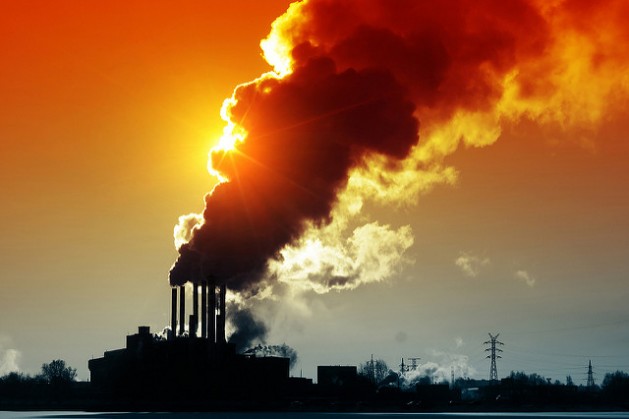Wednesday, April 24, 2024
News and Views from the Global South
Germany Loses Position as Climate Leader Over Industry Interests

Credit: Bigstock
BONN, 8 Nov 2016 — Germany was once considered to be a climate champion but is now in the process of losing its green reputation. The country failed to approve a national climate protection plan ahead of the UN global summit in Morocco because it caved to industry interests, critics say.
Almost a year on from the Paris Climate Agreement, the Climate Protection Plan 2050 was supposed to show Germany’s contribution to pledges made under the international climate treaty. The plan lays out how Germany will cut fossil fuels and achieve its goal of reducing CO2 emissions up to 95% below the level of 1990 by 2050.
Environmental minister Barbara Hendricks presented a draft in April 2016 and despite several amendments negotiated by the economy, traffic and agriculture ministries, she failed to get approval for the blueprint in early November. The plan “wasn’t ready to be passed,” a government spokesman said on November 2. Hendricks will arrive empty-handed at the UN Climate Change Conference in Marrakech, Morocco, November 7-18. .
The plan was strongly criticized by an alliance of German environmental NGOs. A joint statement by Greenpeace, Germanwatch, WWF, NABU and BUND claimed that the original draft presented by environmental minister Hendricks was watered down.
“The ministers have trimmed the Climate Protection Plan 2050 beyond recognition,” said Tobias Austrup, political expert for energy and transport at Greenpeace in Germany. “The ministers actively torpedo any efforts to protect the climate.”
Ministers for agriculture and transport have rejected bigger responsibilities to cut CO2 emissions in their sectors. The original draft proposed to drastically limit emissions in farming and to phase out combustion engines by 2030. The ministers said the draft was neither “realistic” nor “economically stable”.
The current version of the proposal does no longer contain a timetable to exit coal-fired power generation or C02 emissions reduction goals for individual sectors. Instead, it suggests measures to ensure Germany will be "largely" greenhouse-gas neutral by 2050.
The fight against climate change has long been a priority of Chancellor Angela Merkel, who hosted the first international UN climate summit in 1995 during her time as environmental minister. But she has been noticeably absent in the debate about the climate protection plan in the last few months.
Experts say Germany has caved to the interests of the industry.
“The current German government is not willing to confront established interests and sectors in terms of climate policy,” said Kurt Huebner, director of the Institute for European Studies at the University of British Columbia. “The main idea seems to defend industrial interests in sectors like the automotive industry, chemicals and so on.”
Germany’s green reputation suffers
Although the postponement of Germany’s climate plan won’t have an immediate impact on the Marrakech meeting and the Paris Climate Agreement, which became international law on November 4, it is likely to leave a dent in the country’s green reputation.
Germany has been noted around the world as a successful example of how to increase renewable energy production as part of a decarbonisation strategy. Emerging economies such as China have studied how Germany has managed to introduce growing share of wind and solar power without massive energy storage systems and blackouts. Although the so-called ‘Energiewende’ might be too expensive for other nations to just copy, it has contributed to Germany’s status as role model in dealing with energy transition.
“The Energiewende has given it a high degree of legitimacy in international climate negotiations as a country that is showing how decarbonisation can work in practice,” said Robert Falkner, an associate at the London School of Economics and Political Science’s Grantham Research Institute on Climate Change and the Environment.
“Any news about Germany failing to get its domestic act together ahead of the COP22 is an unwelcome development, which is bound to raise doubts about its ambition to continue to be an international climate leader.”
Following a series of two-day media training workshops on the UN's post-2015 global development agenda, we will be running feature articles and oped pieces written by some of the young journalists who participated in them. Sponsored by Inter Press Service (IPS) news agency, the media workshops are supported by the UN Foundation.
The series of articles will focus on the UN's 17 Sustainable Development Goals (SDGs), approved by world leaders during the UN General Assembly session in September 2015, and the Climate Change Agreement which came into force in November 2016.

 Print
Print


